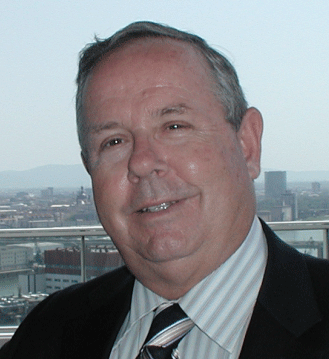Folks, we must constantly remind ourselves that “process” takes precedence over “technology” and technology should be designed to enable best practices. During the e-revolution many of the process best practices were first identified by those designing demand planning software. For example, the ability to identify exceptions to pre-defined rules in real-time and instantly issue alerts to planners. This best practice was in place before technology. However, technology is advancing and being embraced so rapidly that it often dominates our processes by default. That is, our people are not keeping pace with the knowledge, education, skills and abilities via objective training required to leverage the software. In many cases this has led to sub-optimal processes for planning and forecasting, where systems are wrongfully blamed for failure.
As the Business Process Education Manager at BASF I often ask my students which of the three components of operational excellence (People-Process-Technology) controls overall success? Unfortunately, some answer our ERP system. Many of us are asking; do we really run our ERP system or is it running us? The latest advancements in ERP software provide high power heuristics that can automatically calculate order quantities, safety stocks, maximum inventory levels, etc., based in part on demand forecasts. Priorities and trade-offs can be managed by the system. However, the objectives and associated rules are determined by people. Therefore, how effectively we deploy new processes and systems relates directly to the knowledge and skill of our people.
We must act now to avoid the “Terminator Syndrome” (Systems and machines taking over). Our people can make the difference in whether technology or process receives priority. But, to do so they must be educated and trained in planning processes and then how the latest software enables planning. For example, if a Demand Planner does not understand how the software creates the forecast or the recommended safety stock related to forecast error, they cannot contribute to improving process performance.
We all agree that more emphasis is needed on what is best overall for the firm. For example, we want to leverage our S&OP processes to maximize the value added to the bottom-line. Software firms have responded by providing advanced tools that can simulate and optimize demand & supply plans across the business. However, we must ask if our employee skills are keeping pace, particularly in process best practices and quantitative methods such as time series forecasting, causal modeling, statistics, and more. Furthermore, internal collaboration and teamwork is now recognized as most important to business success since technology has enabled a much more integrated approach to planning. What is your firm doing to prepare employees to contribute in this new environment of the system and machine?
The Institute of Business Forecasting & Planning, IBF is the leader in providing S&OP, Demand Planning and Forecasting education & training. The breadth of the IBF program includes understanding these processes from a strategic, tactical and operational perspective. For example, their conference presentations include how firms are using demand planning to improve business performance as well as tutorials on how to better perform specific tasks. Participants learn both technical and personal competencies needed to succeed in today’s fast-paced, ever-changing environment. For the Demand Planner, the Certified Professional Forecaster (CPF) program provides the knowledge and skill needed to contribute to process design and system configuration.
— Want to discuss the latest technology trends with software providers on the leading edge?
— Want to hear how successful firms leverage people-process-technology to improve performance?
— Want to learn how to design planning processes and configure software to enable best practices?
— Want to prepare yourself to better contribute to your firm’s success?
Attend the IBF’s Best Practices Conference in Orlando, October 24-26, 2010
Alan L. Milliken, CFPIM, CSCP, CPF
Business Process Education Manager
BASF Corporation
About Alan Milliken:
Alan Milliken is Business Process Education Manager for BASF Corporation. He has extensive experience as a practitioner, consultant and educator in supply chain & operations management. Alan spent over 20 years at major manufacturing sites serving in production, logistics, process control, operator training, and scheduling. He has spent the past 15 years as a business process consultant and educator. Alan served as a subject matter expert on the teams that created the Certified Supply Chain Professional (CSCP) program for APICS and the Certified Professional Forecaster (CPF) for the Institute of Business Forecasting & Planning, IBF. He holds an engineering degree from Auburn University and an MBA in Management from Clemson University.



